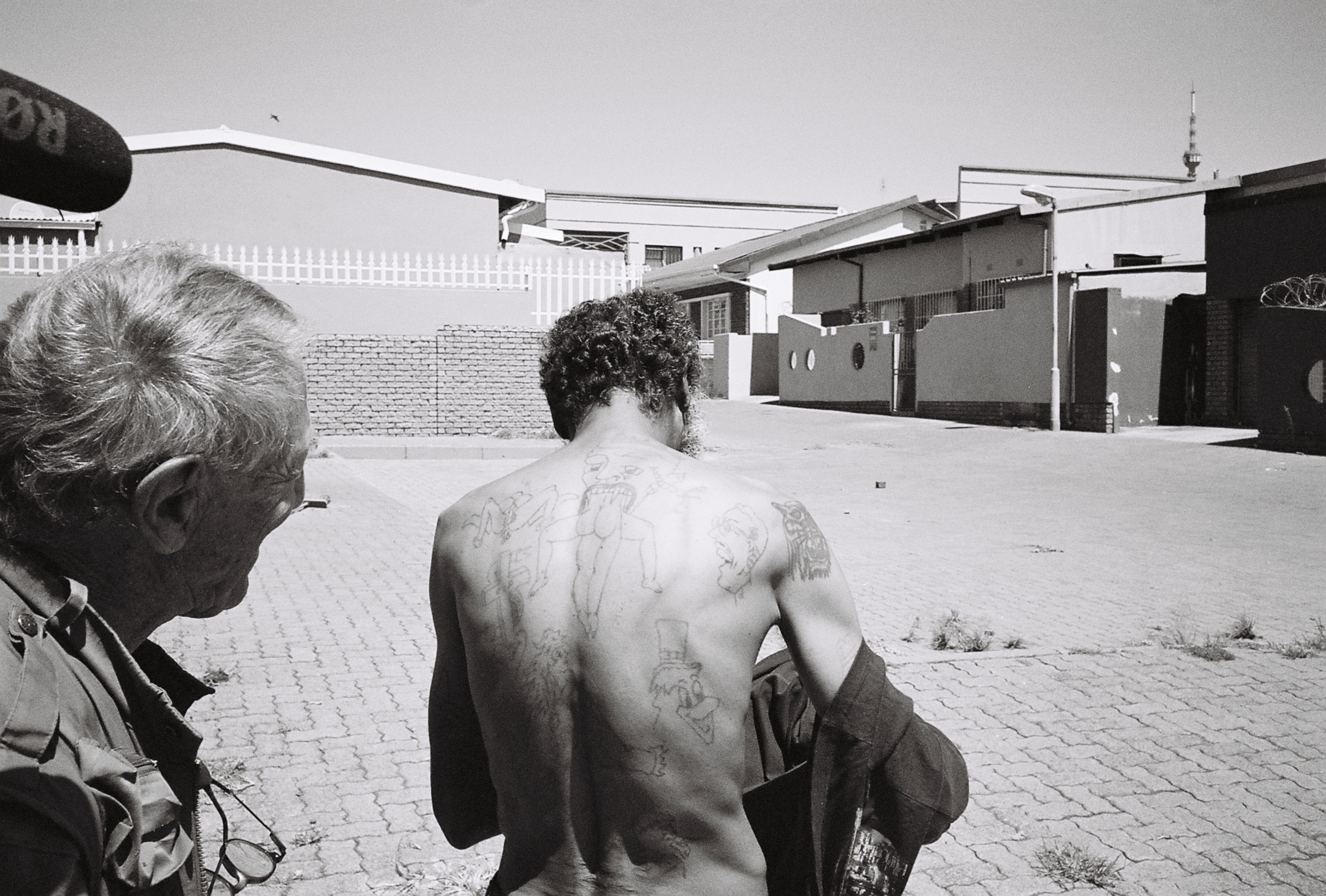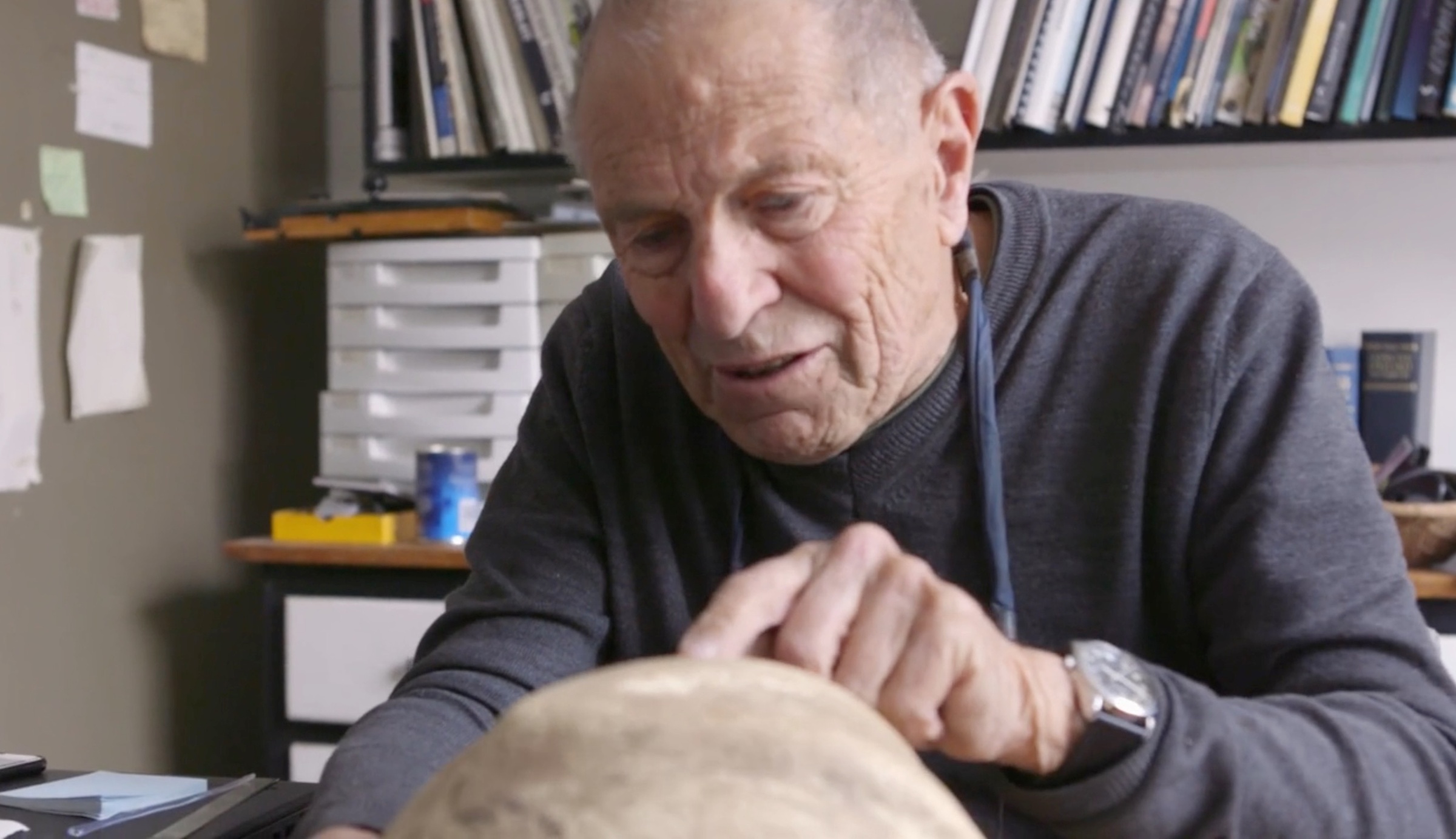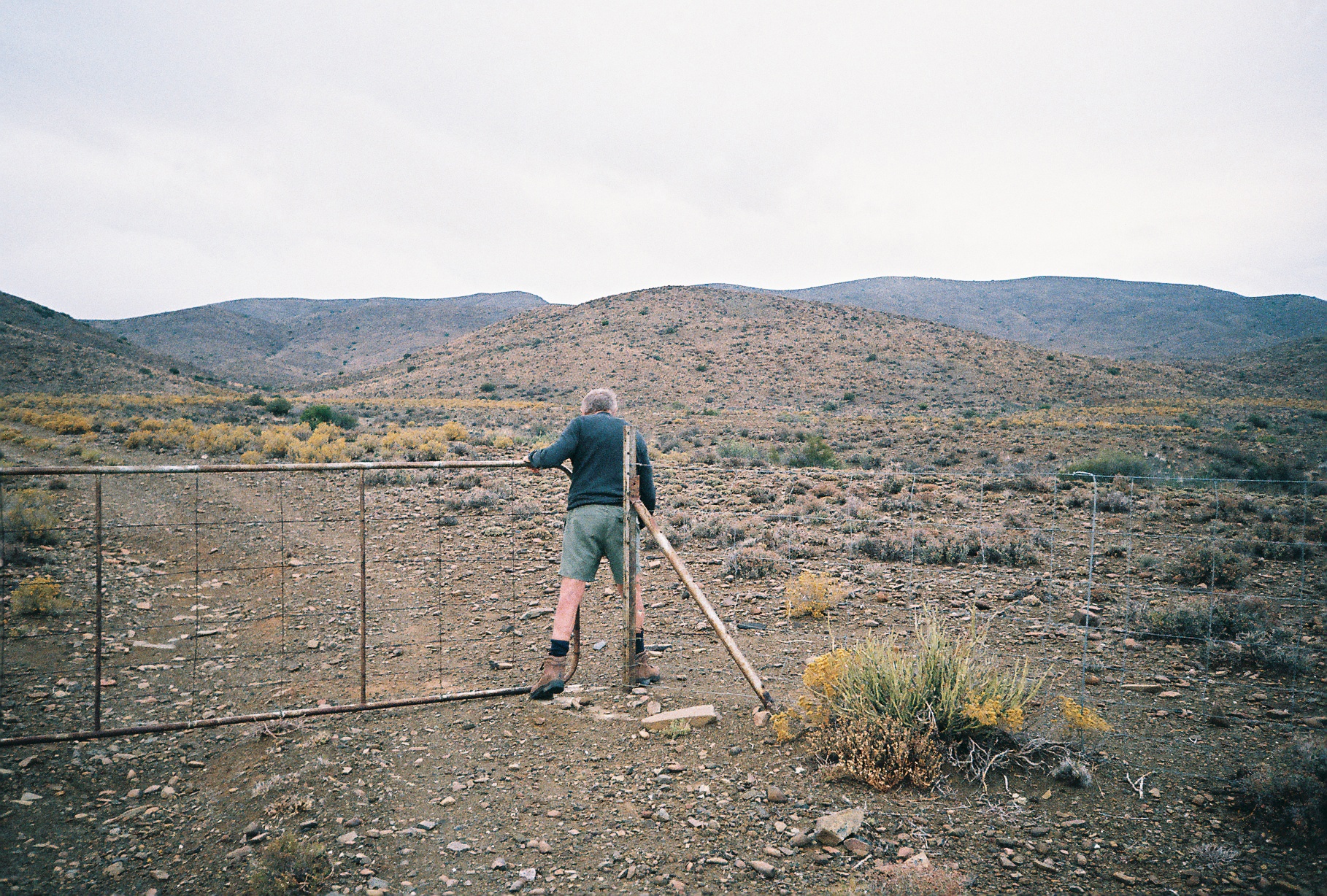
Director:
Daniel Zimbler
Producers:
Liza Essers
Josh Ginsburg
Executive producer:
Liza Essers
Co-executive producers:
Brenda Goldblatt
Wendy Fisher
Camera:
James Adey
Kyle Morland
Daniel Zimbler
Archival cameras:
Greg Marinovich
Clifford Bestall
Editors:
Khalid Shamis
Daniel Zimbler
Music:
Qasim Naqvi
A Goodman Gallery production
in association with A4 Arts Foundation
A Studio Merge film
Many witnesses were first exposed to the iniquities of apartheid through the lens of South Africa’s foremost photographer David Goldblatt.
The film chronicles Goldblatt's efforts to capture the single picture which still eluded him; to see the land, in his words, “through the eyes of a virgin.”
Drawing on Goldblatt’s rich catalogue, the film is a meditation on identity, place, and longing, set within the complex, ever-shifting landscape of South Africa.
The documentary features interviews with Nadine Gordimer and William Kentridge, with insights from Omar Badsha, Neil Dundas, Lily Goldblatt, Nadine Gordimer, Mark Haworth-Booth, Ashraf Jamal, William Kentridge, Mokhete Khoda, Queen Monyeki, Zanele Muholi, Marlene van Niekerk, Sean O’Toole, Ivor Powell, Jo Ractliffe, Ibrahim Salie, and Paul Weinberg.
Goldblatt was 86 years of age at the time of making the documentary and passed on soon after it was completed, on 25 June 2018. Goldblatt continued his unrelenting, prolific protest-in-pictures against inequality and social injustice in South Africa until the end.
–
Excerpt from an interview by Lisa Girault (L.G.) of MCA, Sydney, with director Daniel Zimbler (D.Z.):
L.G. In capturing portraits, David says that his object is a simple one: “to convey as strongly as I can the presence of the subject, the person." How willing a subject was David for this film?
D.Z. David was basically always busy. And the idea of sitting as a subject for someone else’s lens didn’t, I think, appeal to him very much. So he had his reservations going in. But once he realised we weren’t asking too much, he eased up. Probably eager to expedite a process that would get us out of his hair as quickly as possible so that he could continue with his work. And we ended up acting as assistants in his process, too, whenever possible. We’d share driving with him, navigate, help carry gear, etc. We embedded in Team Goldblatt as best we could so that we might observe David’s process, his way of moving and being with the camera and subject. And by and by, we became friends, which probably made the process easier for both sides. We were careful not to push too hard for moments of self-revelation, or have him pose at sunset. We tried to dig in when it felt there was fertile ground, or a pressing question. Whether he thought the whole enterprise was worth it at the outset or not, by the end, he had given a great deal with unguarded generosity.

